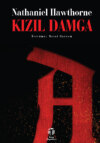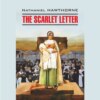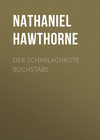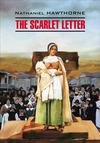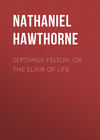Kitabı oku: «The Whole History of Grandfather's Chair», sayfa 7
CHAPTER VI. POMPS AND VANITIES
A FEW evenings afterwards, cousin Clara happened inquire of Grandfather whether the old chair had never been present at a ball. At the same time little Alice brought forward a doll, with whom she had been holding a long conversation.
“See, Grandfather!” cried she. “Did such a pretty lady as this ever sit in your great chair?”
These questions led Grandfather to talk about the fashions and manners which now began to be introduced from England into the provinces. The simplicity of the good old Puritan times was fast disappearing. This was partly owing to the increasing number and wealth of the inhabitants, and to the additions which they continually received by the arrival and settlement of people from beyond the sea.
Another cause of a pompous and artificial mode of life, among those who could afford it, was that the example was set by the royal governors. Under the old charter, the governors were the representatives of the people, and therefore their way of living had probably been marked by a popular simplicity. But now, as they represented the person of the king, they thought it necessary to preserve the dignity of their station by the practice of high and gorgeous ceremonials. And, besides, the profitable offices under the government were filled by men who had lived in London, and had there contracted fashionable and luxurious habits of living which they would not now lay aside. The wealthy people of the province imitated them; and thus began a general change in social life.
“So, my dear Clara,” said Grandfather, “after our chair had entered the Province House, it must often have been present at balls and festivals; though I cannot give you a description of any particular one. But I doubt not that they were very magnificent; and slaves in gorgeous liveries waited on the guests, and offered them wine in goblets of massive silver.”
“Were there slaves in those days!” exclaimed Clara.
“Yes, black slaves and white,” replied Grandfather. “Our ancestors not only brought negroes from Africa, but Indians from South America, and white people from Ireland. These last were sold, not for life, but for a certain number of years, in order to pay the expenses of their voyage across the Atlantic. Nothing was more common than to see a lot of likely Irish girls advertised for sale in the newspapers. As for the little negro babies, they were offered to be giver away like young kittens.”
“Perhaps Alice would have liked one to play with, instead of her doll,” said Charley, laughing.
But little Alice clasped the waxen doll closer to her bosom.
“Now, as for this pretty doll, my little Alice,” said Grandfather, “I wish you could have seen what splendid dresses the ladies wore in those times. They had silks, and satins, and damasks, and brocades, and high head-dresses, and all sorts of fine things. And they used to wear hooped petticoats of such enormous size that it was quite a journey to walk round them.”
“And how did the gentlemen dress?” asked Charley.
“With full as much magnificence as the ladies,” answered Grandfather. “For their holiday suits they had coats of figured velvet, crimson, green, blue, and all other gay colors, embroidered with gold or silver lace. Their waistcoats, which were five times as large as modern ones, were very splendid. Sometimes the whole waistcoat, which came down almost to the knees, was made of gold brocade.”
“Why, the wearer must have shone like a golden image!” said Clara.
“And then,” continued Grandfather, “they wore various sorts of periwigs, such as the tie, the Spencer, the brigadier, the major, the Albemarle, the Ramillies, the feather-top, and the full-bottom. Their three-cornered hats were laced with gold or silver. They had shining buckles at the knees of their small-clothes, and buckles likewise in their shoes. They wore swords with beautiful hilts, either of silver, or sometimes of polished steel, inlaid with gold.”
“Oh, I should like to wear a sword!” cried Charley.
“And an embroidered crimson velvet coat,” said Clara, laughing, “and a gold brocade waistcoat down to your knees.”
“And knee-buckles and shoe-buckles,” said Laurence, laughing also.
“And a periwig,” added little Alice, soberly, not knowing what was the article of dress which she recommended to our friend Charley.
Grandfather smiled at the idea of Charley’s sturdy little figure in such a grotesque caparison. He then went on with the history of the chair, and told the children that, in 1730, King George II. appointed Jonathan Belcher to be governor of Massachusetts in place of the deceased Governor Burner. Mr. Belcher was a native of the province, but had spent much of his life in Europe.
The new governor found Grandfather’s chair in the Province House. He was struck with its noble and stately aspect, but was of opinion that age and hard services had made it scarcely so fit for courtly company as when it stood in the Earl of Lincoln’s hall. Wherefore, as Governor Belcher was fond of splendor, he employed a skilful artist to beautify the chair. This was done by polishing and varnishing it, and by gilding the carved work of the elbows, and likewise the oaken flowers of the back. The lion’s head now shone like a veritable lump of gold. Finally Governor Belcher gave the chair a cushion of blue damask, with a rich golden fringe.
“Our good old chair being thus glorified,” proceeded Grandfather, “it glittered with a great deal more splendor than it had exhibited just a century before, when the Lady Arbella brought it over from England. Most people mistook it for a chair of the latest London fashion. And this may serve for an example, that there is almost always an old and timeworn substance under all the glittering show of new invention.”
“Grandfather, I cannot see any of the gilding,” remarked Charley, who had been examining the chair very minutely.
“You will not wonder that it has been rubbed off,” replied Grandfather, “when you hear all the adventures that have since befallen the chair. Gilded it was; and the handsomest room in the Province House was adorned by it.”
There was not much to interest the children in what happened during the years that Governor Belcher remained in the chair. At first, like Colonel Shute and Governor Burner, he was engaged in disputing with the Legislature about his salary. But, as he found it impossible to get a fixed sum, he finally obtained the king’s leave to accept whatever the Legislature chose to give him. And thus the people triumphed, after this long contest for the privilege of expending their own money as they saw fit.
The remainder of Governor Belcher’s term of office was principally taken up in endeavoring to settle the currency. Honest John Hull’s pine-tree shillings had long ago been worn out, or lost, or melted down again; and their place was supplied by bills of paper or parchment, which were nominally valued at threepence and upwards. The value of these bills kept continually sinking, because the real hard money could not be obtained for them. They were a great deal worse than the old Indian currency of clam-shells. These disorders of the circulating medium were a source of endless plague and perplexity to the rulers and legislators, not only in Governor Belcher’s days, but for many years before and afterwards.
Finally the people suspected that Governor Belcher was secretly endeavoring to establish the Episcopal mode of worship in the provinces. There was enough of the old Puritan spirit remaining to cause most of the true sons of New England to look with horror upon such an attempt. Great exertions were made to induce the king to remove the governor. Accordingly, in 1740, he was compelled to resign his office, and Grandfather’s chair into the bargain, to Mr. Shirley.
CHAPTER VII. THE PROVINCIAL MUSTER
“WILLIAM SHIRLEY,” said Grandfather, “had come from England a few years before, and begun to practise law in Boston. You will think, perhaps, that, as he had been a lawyer, the new governor used to sit in our great chair reading heavy law-books from morning till night. On the contrary, he was as stirring and active a governor as Massachusetts ever had. Even Sir William Phips hardly equalled him. The first year or two of his administration was spent in trying to regulate the currency. But in 1744, after a peace of more than thirty years, war broke out between France and England.”
“And I suppose,” said Charley, “the governor went to take Canada.”
“Not exactly, Charley,” said Grandfather; “though you have made a pretty shrewd conjecture. He planned, in 1745, an expedition against Louisburg. This was a fortified city, on the island of Cape Breton, near Nova Scotia. Its walls were of immense height and strength, and were defended by hundreds of heavy cannon. It was the strongest fortress which the French possessed in America; and if the king of France had guessed Governor Shirley’s intentions, he would have sent all the ships he could muster to protect it.”
As the siege of Louisburg was one of the most remarkable events that ever the inhabitants of New England were engaged in, Grandfather endeavored to give his auditors a lively idea of the spirit with which they set about it. We shall call his description The Provincial Muster.
The expedition against Louisburg first began to be thought of in the month of January. From that time the governor’s chair was continually surrounded by councillors, representatives, clergymen, captains, pilots, and all manner of people, with whom he consulted about this wonderful project.
First of all, it was necessary to provide men and arms. The Legislature immediately sent out a huge quantity of paper-money, with which, as if by magic spell, the governor hoped to get possession of all the old cannon, powder and balls, rusty swords and muskets, and everything else that would be serviceable in killing Frenchmen. Drums were beaten in all the villages of Massachusetts to enlist soldiers for the service. Messages were sent to the other governors of New England, and to New York and Pennsylvania, entreating them to unite in this crusade against the French. All these provinces agreed to give what assistance they could.
But there was one very important thing to be decided. Who shall be the general of this great army? Peace had continued such an unusual length of time that there was now less military experience among the colonists than at any former period. The old Puritans had always kept their weapons bright, and were never destitute of warlike captains who were skilful in assault or defence. But the swords of their descendents had grown rusty by disuse. There was nobody in New England that knew anything about sieges or any other regular fighting. The only persons at all acquainted with warlike business were a few elderly men, who had hunted Indians through the underbrush of the forest in old Governor Dummer’s War.
In this dilemma Governor Shirley fixed upon a wealthy merchant, named William Pepperell, who was pretty well known and liked among the people. As to military skill, he had no more of it than his neighbors. But, as the governor urged him very pressingly, Mr. Pepperell consented to shut up his ledger, gird on a sword, and assume the title of general.
Meantime, what a hubbub was raised by this scheme! Rub-a-dub-dub! rub-a-dub-dub! The rattle of drums, beaten out of all manner of time, was heard above every other sound.
Nothing now was so valuable as arms, of whatever style and fashion they might be. The bellows blew, and the hammer clanged continually upon the anvil, while the blacksmiths were repairing the broken weapons of other wars. Doubtless some of the soldiers lugged out those enormous, heavy muskets which used to be fired, with rests, in the time of the early Puritans. Great horse-pistols, too, were found, which would go off with a bang like a cannon. Old cannon, with touchholes almost as big as their muzzles, were looked upon as inestimable treasures. Pikes which, perhaps, had been handled by Miles Standish’s soldiers, now made their appearance again. Many a young man ransacked the garret and brought forth his great-grandfather’s sword, corroded with rust and stained with the blood of King Philip’s War.
Never had there been such an arming as this, when a people, so long peaceful, rose to the war with the best weapons that they could lay their hands upon. And still the drums were heard – rub-a-dub-dub! rub-a-dub-dub! – in all the towns and villages; and louder and more numerous grew the trampling footsteps of the recruits that marched behind.
And now the army began to gather into Boston. Tan, lanky, awkward fellows came in squads, and companies, and regiments, swaggering along, dressed in their brown homespun clothes and blue yarn stockings. They stooped as if they still had hold of the plough-handles, and marched without any time or tune. Hither they came, from the cornfields, from the clearing in the forest, from the blacksmith’s forge, from the carpenter’s workshop, and from the shoemaker’s seat. They were an army of rough faces and sturdy frames. A trained officer of Europe would have laughed at them till his sides had ached. But there was a spirit in their bosoms which is more essential to soldiership than to wear red coats and march in stately ranks to the sound of regular music.
Still was heard the beat of the drum, – rub-a-dub-dub! And now a host of three or four thousand men had found their way to Boston. Little quiet was there then! Forth scampered the school-boys, shouting behind the drums. The whole town, the whole land, was on fire with war.
After the arrival of the troops, they were probably reviewed upon the Common. We may imagine Governor Shirley and General Pepperell riding slowly along the line, while the drummers beat strange old tunes, like psalm-tunes, and all the officers and soldiers put on their most warlike looks. It would have been a terrible sight for the Frenchmen, could they but have witnessed it!
At length, on the 24th of March, 1745, the army gave a parting shout, and set sail from Boston in ten or twelve vessels which had been hired by the governor. A few days afterwards an English fleet, commanded by Commodore Peter Warren, sailed also for Louisburg to assist the provincial army. So now, after all this bustle of preparation, the town and province were left in stillness and repose.
But stillness and repose, at such a time of anxious expectation, are hard to bear. The hearts of the old people and women sunk within them when they reflected what perils they had sent their sons, and husbands, and brothers to encounter. The boys loitered heavily to School, missing the rub-a-dub-dub and the trampling march, in the rear of which they had so lately run and shouted. All the ministers prayed earnestly in their pulpits for a blessing on the army of New England. In every family, when the good man lifted up his heart in domestic worship, the burden of his petition was for the safety of those dear ones who were fighting under the walls of Louisburg.
Governor Shirley all this time was probably in an ecstasy of impatience. He could not sit still a moment. He found no quiet, not even in Grandfather’s chair; but hurried to and fro, and up and down the staircase of the Province House. Now he mounted to the cupola and looked seaward, straining his eyes to discover if there were a sail upon the horizon. Now he hastened down the stairs, and stood beneath the portal, on the red free-stone steps, to receive some mud-bespattered courier, from whom he hoped to hear tidings of the army. A few weeks after the departure of the troops, Commodore Warren sent a small vessel to Boston with two French prisoners. One of them was Monsieur Bouladrie, who had been commander of a battery outside the walls of Louisburg. The other was the Marquis de la Maison Forte, captain of a French frigate which had been taken by Commodore Warren’s fleet. These prisoners assured Governor Shirley that the fortifications of Louisburg were far too strong ever to be stormed by the provincial army.
Day after day and week after week went on. The people grew almost heart-sick with anxiety; for the flower of the country was at peril in this adventurous expedition. It was now daybreak on the morning of the 3d of July.
But hark! what sound is this? The hurried clang of a bell! There is the Old North pealing suddenly out! – there the Old South strikes in! – now the peal comes from the church in Brattle Street! – the bells of nine or ten steeples are all flinging their iron voices at once upon the morning breeze! Is it joy, or alarm? There goes the roar of a cannon too! A royal salute is thundered forth. And now we hear the loud exulting shout of a multitude assembled in the street. Huzza! huzza! Louisburg has surrendered! Huzza!
“O Grandfather, how glad I should have been to live in those times!” cried Charley. “And what reward did the king give to General Pepperell and Governor Shirley?”
“He made Pepperell a baronet; so that he was now to be called Sir William Pepperell,” replied Grandfather. “He likewise appointed both Pepperell and Shirley to be colonels in the royal army. These rewards, and higher ones, were well deserved; for this was the greatest triumph that the English met with in the whole course of that war. General Pepperell became a man of great fame. I have seen a full-length portrait of him, representing him in a splendid scarlet uniform, standing before the walls of Louisburg, while several bombs are falling through the air.”
“But did the country gain any real good by the conquest of Louisburg?” asked Laurence. “Or was all the benefit reaped by Pepperell and Shirley?”
“The English Parliament,” replied Grandfather, “agreed to pay the colonists for all the expenses of the siege. Accordingly, in 1749, two hundred and fifteen chests of Spanish dollars and one hundred casks of copper coin were brought from England to Boston. The whole amount was about a million of dollars. Twenty-seven carts and trucks carried this money from the wharf to the provincial treasury. Was not this a pretty liberal reward?”
“The mothers of the young men who were killed at the siege of Louisburg would not have thought it so,” said Laurence.
“No; Laurence,” rejoined Grandfather; “and every warlike achievement involves an amount of physical and moral evil, for which all the gold in the Spanish mines would not be the slightest recompense. But we are to consider that this siege was one of the occasions on which the colonists tested their ability for war, and thus were prepared for the great contest of the Revolution. In that point of view, the valor of our forefathers was its own reward.”
Grandfather went on to say that the success of the expedition against Louisburg induced Shirley and Pepperell to form a scheme for conquering Canada, This plan, however, was not carried into execution.
In the year 1746 great terror was excited by the arrival of a formidable French fleet upon the coast It was commanded by the Duke d’Anville, and consisted of forty ships of war, besides vessels with soldiers on board. With this force the French intended to retake Louisburg, and afterwards to ravage the whole of New England. Many people were ready to give up the country for lost.
But the hostile fleet met with so many disasters and losses by storm and shipwreck, that the Duke d’Anville is said to have poisoned himself in despair. The officer next in command threw himself upon his sword and perished. Thus deprived of their commanders, the remainder of the ships returned to France. This was as great a deliverance for New England as that which Old England had experienced in the days of Queen Elizabeth, when the Spanish Armada was wrecked upon her coast.
“In 1747,” proceeded Grandfather, “Governor Shirley was driven from the Province House, not by a hostile fleet and army, but by a mob of the Boston people. They were so incensed at the conduct of the British Commodore Knowles, who had impressed some of their fellow-citizens, that several thousands of them surrounded the council chamber and threw stones and brickbats into the windows. The governor attempted to pacify them; but not succeeding, he thought it necessary to leave the town and take refuge within the walls of Castle William. Quiet was not restored until Commodore Knowles had sent back the impressed men. This affair was a flash of spirit that might have warned the English not to venture upon any oppressive measures against their colonial brethren.”
Peace being declared between France and England in 1748, the governor had now an opportunity to sit at his ease in Grandfather’s chair. Such repose, however, appears not to have suited his disposition; for in the following year he went to England, and thence was despatched to France on public business. Meanwhile, as Shirley had not resigned his office, Lieu-tenant-Governor Phips acted as chief magistrate in his stead.

